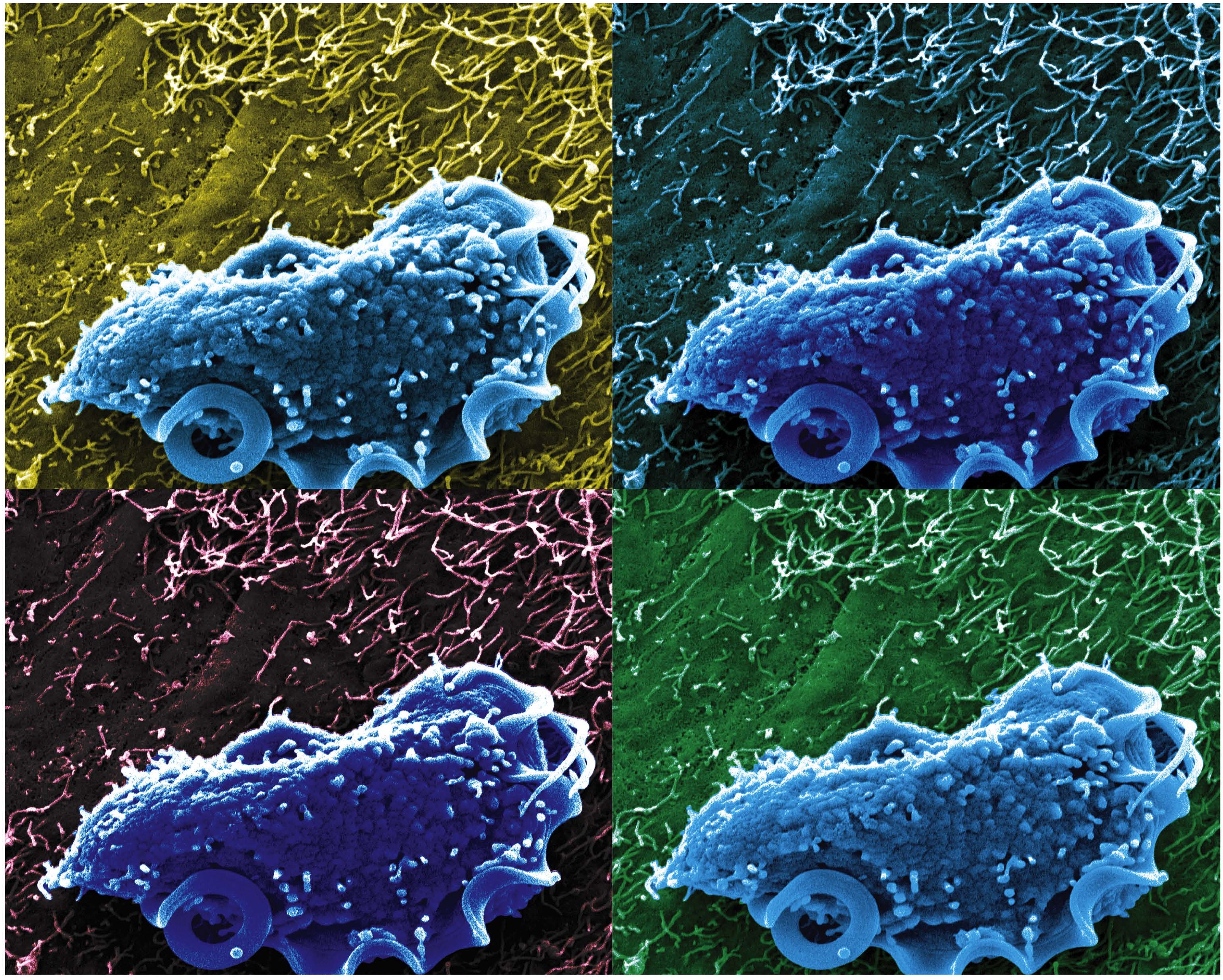IBD
Creative Minds: Giving Bacteria Needles to Fight Intestinal Disease
Posted on by Dr. Francis Collins
For Salmonella and many other disease-causing bacteria that find their way into our bodies, infection begins with a poke. That’s because these bad bugs are equipped with a needle-like protein filament that punctures the outer membrane of human cells and then, like a syringe, injects dozens of toxic proteins that help them replicate.
Cammie Lesser at Massachusetts General Hospital and Harvard Medical School, Cambridge, and her colleagues are now on a mission to bioengineer strains of bacteria that don’t cause disease to make these same syringes, called type III secretion systems. The goal is to use such “good” bacteria to deliver therapeutic molecules, rather than toxins, to human cells. Their first target is the gastrointestinal tract, where they hope to knock out hard-to-beat bacterial infections or to relieve the chronic inflammation that comes with inflammatory bowel disease (IBD).
Mouse Study Finds Microbe Might Protect against Food Poisoning
Posted on by Dr. Francis Collins

Caption: Scanning electron microscopy image of T. mu in the mouse colon.
Credit: Aleksey Chudnovskiy and Miriam Merad, Icahn School of Medicine at Mount Sinai
Recently, we humans have started to pay a lot more attention to the legions of bacteria that live on and in our bodies because of research that’s shown us the many important roles they play in everything from how we efficiently metabolize food to how well we fend off disease. And, as it turns out, bacteria may not be the only interior bugs with the power to influence our biology positively—a new study suggests that an entirely different kingdom of primarily single-celled microbes, called protists, may be in on the act.
In a study published in the journal Cell, an NIH-funded research team reports that it has identified a new protozoan, called Tritrichomonas musculis (T. mu), living inside the gut of laboratory mice. That sounds bad—but actually this little wriggler was potentially providing a positive benefit to the mice. Not only did T. mu appear to boost the animals’ immune systems, it spared them from the severe intestinal infection that typically occurs after eating food contaminated with toxic Salmonella bacteria. While it’s not yet clear if protists exist that can produce similar beneficial effects in humans, there is evidence that a close relative of T. mu frequently resides in the intestines of people around the world.
Creative Minds: New Piece in the Crohn’s Disease Puzzle?
Posted on by Dr. Francis Collins

Gwendalyn Randolph
Back in the early 1930s, Burrill Crohn, a gastroenterologist in New York, decided to examine intestinal tissue biopsies from some of his patients who were suffering from severe bowel problems. It turns out that 14 showed signs of severe inflammation and structural damage in the lower part of the small intestine. As Crohn later wrote a medical colleague, “I have discovered, I believe, a new intestinal disease …” [1]
More than eight decades later, the precise cause of this disorder, which is now called Crohn’s disease, remains a mystery. Researchers have uncovered numerous genes, microbes, immunologic abnormalities, and other factors that likely contribute to the condition, estimated to affect hundreds of thousands of Americans and many more worldwide [2]. But none of these discoveries alone appears sufficient to trigger the uncontrolled inflammation and pathology of Crohn’s disease.
Other critical pieces of the Crohn’s puzzle remain to be found, and Gwendalyn Randolph thinks she might have her eyes on one of them. Randolph, an immunologist at Washington University, St. Louis, suspects that Crohn’s disease and other related conditions, collectively called inflammatory bowel disease (IBD), stems from changes in vessels that carry nutrients, immune cells, and possibly microbial components away from the intestinal wall. To pursue this promising lead, Rudolph has received a 2015 NIH Director’s Pioneer Award.

